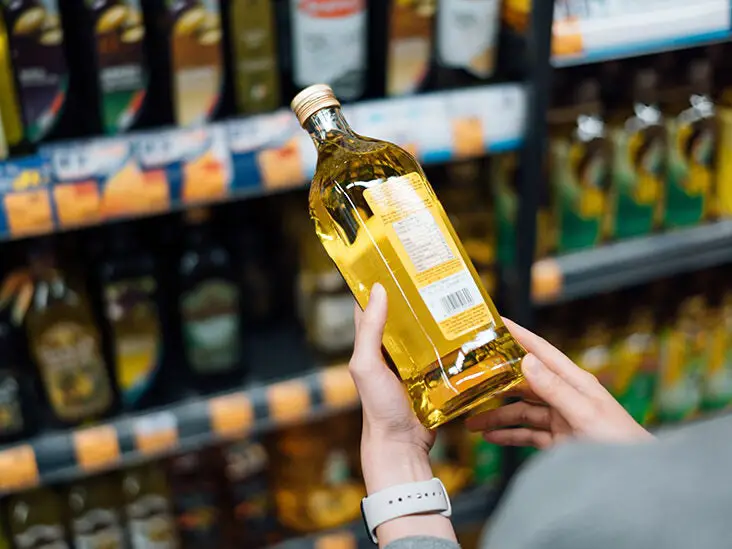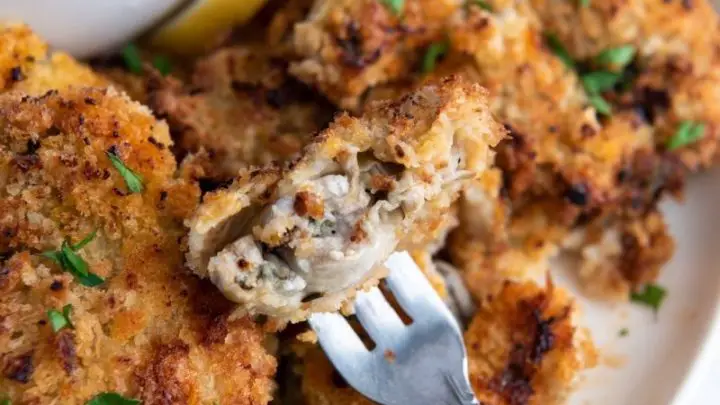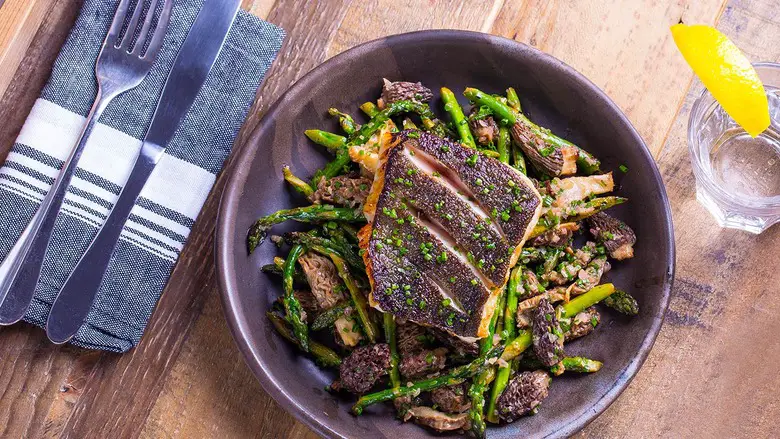Cooking oil is an essential ingredient in many homes and restaurants. It adds flavor, texture, and moisture when used in the right amounts. However, what happens when one drinks cooking oil? Is it harmful, and if so, what types of cooking oil are harmful, and which are safe to consume in small amounts? This article will answer these questions and provide an in-depth guide to the possible effects of drinking cooking oil.
##### What Happens When You Drink Cooking Oil?
Cooking oil is not designed for oral consumption. The digestive system can break down and absorb fatty substances such as cooking oil, but it can also cause adverse side effects such as nausea, vomiting, diarrhea, and abdominal cramping.
When ingested in large amounts over time, the cardiovascular system could be at risk. Excessive intake of cooking oils could lead to the accumulation of plaque in arteries due to the increased concentration of triglycerides. In turn, this raises the risk of heart disease.
##### Which Types Of Cooking Oils Are Harmful?
Certain types of cooking oils are more harmful than others when ingested. Hydrogenated oils are one such type. Hydrogenation is a process that turns liquid vegetable oils into semi-solid fats by adding hydrogen. The result is a trans-fat-filled product that poses a health risk when consumed.
Hydrogenated oils increase low-density lipoprotein (LDL) or “bad cholesterol” levels while reducing high-density lipoprotein (HDL) or “good cholesterol.” As such, consuming them could lead to heart disease.
Common food products that contain hydrogenated oils include most commercially-produced baked goods such as cookies, pastries, and doughnuts. They can also be found in frozen foods such as pizza and fried products such as french fries.
Highly processed oils are another type of cooking oil that is relatively unhealthy when consumed orally. Refined oils go through a process that removes impurities, but this process also takes away valuable nutrients.
Some of the most common highly processed oils include canola oil, soybean oil, and corn oil. When consumed in large amounts over time, these oils could lead to inflammation in the body and an array of health conditions.
##### Which Types Of Cooking Oils Are Safe To Consume In Small Amounts?
Cold-pressed oils are a much better option when it comes to cooking oils to consume orally. They are made by crushing fruits or vegetables without any heat application. Cold-pressed oils retain all of their natural flavors, aroma, and nutrients, making them exceptionally beneficial for health.
Benefits of cold-pressed oils include maintaining healthy cholesterol levels, reducing high blood pressure, fighting inflammation in the body, enhancing digestive health, improving brain function, and providing essential nutrients to the body.
Examples of cold-pressed oils include olive oil, avocado oil, coconut oil, sunflower oil and virgin coconut oil.
Unrefined oils are also a safer option than their refined counterparts. Although they go through a certain level of processing before they reach store shelves, unrefined oils maintain most of their natural nutritional value as they do not undergo extensive filtering or heating processes.
Examples of unrefined oils include coconut oil, flaxseed oil and sesame oil. They offer various health benefits such as reducing inflammation in the body and supporting healthy colon functions.
It is essential for individuals who consume cooking oils to understand the labeling details on packaging since some companies give cold-pressed or unrefined labels to products that aren’t 100% so. The packaging should explicitly state “cold-pressed” or “unrefined” when it applies.
##### Why Would Someone Drink Cooking Oil?
There are several reasons an individual might choose to drink cooking oil. However, unless it’s part of a culture or medical practice where traditions dictate drinking some form of fat in one’s diet daily – then there is a problem with consuming cooking oil orally.
Eating disorders, mental health issues such as Pica and some gastrointestinal issues could lead some individuals to consume cooking oils. However, this habit increases the risk of experiencing adverse side effects. Anyone who experiences unexplainable cravings for cooking oils should consult a medical practitioner.
##### What Should You Do If You Accidentally Drink Cooking Oil?
If someone accidentally ingests cooking oil or any other harmful substance, taking immediate action is crucial. Here are tips on what to do:
– Drinking water, milk, or another liquid to dilute the oil in the stomach. Milk coats the stomach lining and lessens discomfort.
– Refrain from inducing vomiting if the person does not present symptoms of immediate complications.
– Contact a medical professional immediately if symptoms persist or get worse.
##### Frequently Asked Questions About Drinking Cooking Oil
Q: Is it safe to consume any type of oil orally?
A: No, it is not safe to consume just any oil orally. Hydrogenated oils and highly processed oils pose health risks when consumed orally.
Q: Can drinking cooking oil cause serious health issues?
A: Drinking cooking oil can lead to adverse side effects such as nausea and vomiting. Ingesting large amounts over time increases the risk of heart disease as well as several other health concerns.
Q: Why are cold-pressed oils recommended over other types of cooking oils?
A: Cold-pressed oils retain more natural nutrients than refined oils making them healthier options for cooking and eating purposes.
Q: Can I treat iron deficiency anemia by drinking cooking oil?
A: No. Iron deficiency anemia requires specific treatment under medical supervision. Consuming cooking oil will not help alleviate its symptoms.
Q: What amount of undiluted cooking oil is fatal?
A: The lethal dose of undiluted water could vary depending on various factors such as a person’s weight, age, sex among others.
##### Prevention Tips For Avoiding Accidental Ingestion
Several tips help prevent accidental ingestion of cooking-oil-related products. They include:
– Store oils away from areas accessible to children or pets
– Pour cooking oils into a different container with a fitted cap to minimize spillage
– Do not leave cooking oils near the stove or heat source
– Do not use cooking oil in unapproved directions that involve oral consumption.
##### Conclusion
Cooking oils offer several benefits, including enhancing flavor, texture, and aroma when used in appropriate amounts. However, consuming cooking oils orally is ill-advised since it poses several health risks such as gastrointestinal discomfort and heart disease.
Hydrogenated oils and highly processed oils pose more significant health risks than cold-pressed and unrefined oils. For an overall healthy lifestyle, people should consume refined, highly processed, and hydrogenated oils in moderation. When compared to other types of cooking oil, unrefined and cold-pressed oil provides the best nutritional value. Anyone experiencing abnormal cravings should contact a medical practitioner immediately.
Frequently Asked Questions
Can drinking cooking oil cause harm to my health?
Drinking cooking oil can certainly have negative effects on your health as it can lead to various health issues such as abdominal pain, vomiting, diarrhea, and in severe cases, even pancreatitis.
What is the recommended amount of cooking oil that should be consumed per day?
There is no specific recommended amount of cooking oil that should be consumed, but it’s important to note that excessive consumption of any type of oil can lead to health problems. A moderation approach is key, and it’s best to consult with a healthcare provider for personalized advice.
Is there any nutritional benefit to drinking cooking oil?
No, there are no nutritional benefits associated with drinking cooking oil. In fact, it’s quite the opposite as most types of cooking oil are high in calories and unhealthy fats.
What are some healthy alternatives to drinking cooking oil?
Rather than drinking cooking oil, you could incorporate healthier oils into your diet such as avocado or olive oil. Additionally, consuming nuts and seeds provides essential fatty acids that are beneficial for overall health. It’s important to focus on a balanced diet and consult with a registered dietitian for personalized recommendations.






